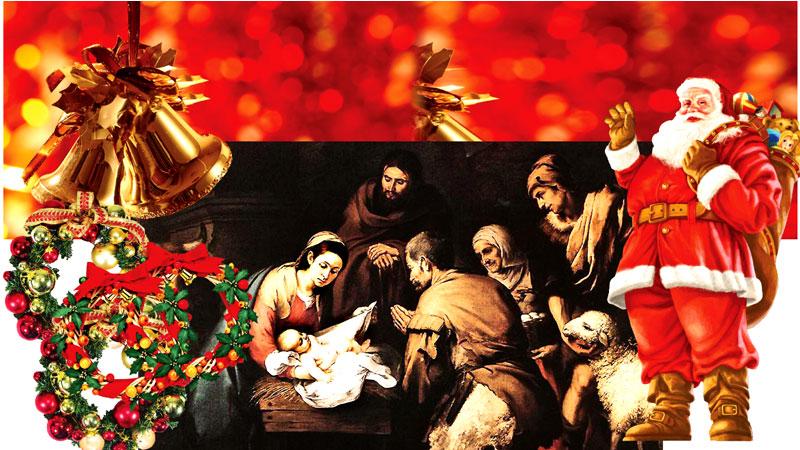
The nativity of Jesus in Bethlehem Judea divided world history into two distinctive eras. One, before the birth of Jesus Christ, and the other after the birth of Jesus Christ. The Holy Bible also divides into two as the Old Testament of Hebrew and Masoretic texts and the New Testament of the life of Jesus written by his disciples Matthew, Mark, Luke and John. Incarnation means the embodiment in flesh, especially, that of a human like incarnation of Christ. God was being born in Jesus, or the living type of quality in Christ. Medically, Incarnation means the forming of new flesh. The incarnation of God as Jesus Christ happened on that first Christmas day, when the feast of Christmas began.
Philosophically, nativism means the doctrine of innate ideas where the doctrine contains what is taught in a body of religious, political, and scientific instruction or anybody’s belief, Dogma or Tenet. Innate ideas contain thoughts inborn, natural and originating in the mind. The divine birth of Christ Jesus came to pass to reconcile man with himself, with his neighbour and with his creator. The Christmas message which Jesus brought with him at Christmas began a challenge. It is an opportunity to be in the manger together with him where there is true peace and love.
True reconciliation through God becoming man, where heaven and earth is united and there exists brotherhood between men and there is silence and humble adoration.
This year, Christmas brings once again, the yearly remembrance of an incarnated Christ, thus the challenge of peace and reconciliation. Such things have to be experienced in our own hearts. It is possible only when one’s heart transforms itself to a manger, having an ambience and an adoration that was present in that first Christmas. God became man to fulfil the predictions of the prophets. God selected a virgin from Nazareth to be the mother of the Messiah.
It is pointless if we do not understand the joy of Christmas which is hopefully shared collectively with the have-nots the poor, downtrodden people and the helpless.
The incarnation at that time was appropriate, as that society was in turmoil. The people at large had to grin and bear until a Messiah came to liberate them from all evils and tribulations. In such a millieu, later on in life, Jesus travelled throughout Galilee preaching a doctrine of thought suitable to the times. He went to Galilee and Judea, preaching about the kingdom of God in simple illustrations and parables in the people’s language, Hebrew. His teachings were based on love, compassion and humility.
Mary, Mother of Jesus, was made to shine forth the divinity, and the Father provided for the greatest possible similarity between the Mother and Himself.
The higher she ascended by the grace of the almighty, so much more lowly were her thoughts concerning herself. She desired very much to be the slave of the one who is to be the Mother of God. This, because she knew the time was ripe for the Messiah to come. The message of Christmas is that God’s word took human form and entered history in the person of Jesus Christ, which is the incarnation.
Jesus later in life mended, healed and redeemed that which was broken, sick and lost. He came the first time, that first Christmas, as a baby in a manger. The second time, he will come to establish his kingdom of peace and righteousness.
Christmas was first officially recognised and celebrated in 356 AD when Pope Julius fixed the date for Jesus’ birthday to be December 25.
This particular date was chosen to replace the Roman pagan Holiday Saturnalia, a winter solstice festival honouring the sun God Saturn. Christmas was entirely pagan until St. Francis of Assisi and the Franciscan monks helped bring the true meaning of Christmas home to the ordinary person.
The world’s first Nativity scene was erected in 1223 by St. Francis of Assisi, and in 1225 the Franciscan monks composed the first carols. Jesus had a doctrine of innate thought, inborn, natural and originating in the mind which later on he preached and taught. Yet, year in and year out, it is the same story.
At this season of Christmas, the haves distribute largesse to the have-nots. Individuals breakout into a spate of selfless giving, and afterwards relapse into a soporific indifference.
If at least one or two of the redeeming features of the season can filter into the remaining months of the year, the results would be inspiring. If the people of this world are egocentric, self centred and miserly, then the world will undoubtedly be a poorer and miserable place to dwell, and certainly, not a haven for the rich and the have-nots to co exist.
After all, it is fair and just to give others too a chance to live equitably and without prejudice and without hampering their mundane existence and indeed their human conditionality for survival. It is fitting to remember that the eye has not seen nor the ear heard, and neither has it entered into the hearts of men what good things God has created for those who love and serve him. Therefore, nativism and incarnation of Christ puts into Christmas a challenge none can ignore, which makes all receive the good news of Christmas. - Miran Perera
